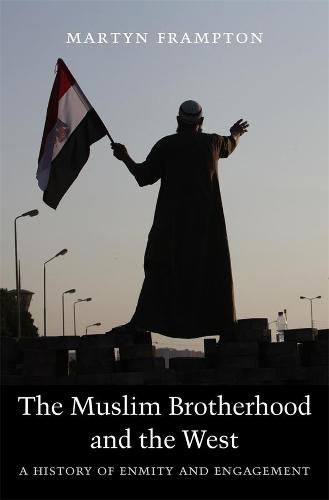Readings Newsletter
Become a Readings Member to make your shopping experience even easier.
Sign in or sign up for free!
You’re not far away from qualifying for FREE standard shipping within Australia
You’ve qualified for FREE standard shipping within Australia
The cart is loading…






The Muslim Brotherhood and the West is the first comprehensive history of the relationship between the world’s largest Islamist movement and the Western powers that have dominated the Middle East for the past century: Britain and the United States.
In the decades since the Brotherhood emerged in Egypt in the 1920s, the movement’s notion of the West has remained central to its worldview and a key driver of its behavior. From its founding, the Brotherhood stood opposed to the British Empire and Western cultural influence more broadly. As British power gave way to American, the Brotherhood’s leaders, committed to a vision of more authentic Islamic societies, oscillated between anxiety or paranoia about the West and the need to engage with it. Western officials, for their part, struggled to understand the Brotherhood, unsure whether to shun the movement as one of dangerous fanatics or to embrace it as a moderate and inevitable part of the region’s political scene. Too often, diplomats failed to view the movement on its own terms, preferring to impose their own external agendas and obsessions.
Martyn Frampton reveals the history of this complex and charged relationship down to the eve of the Arab Spring. Drawing on extensive archival research in London and Washington and the Brotherhood’s writings in Arabic and English, he provides the most authoritative assessment to date of a relationship that is both vital in itself and crucial to navigating one of the world’s most turbulent regions.
$9.00 standard shipping within Australia
FREE standard shipping within Australia for orders over $100.00
Express & International shipping calculated at checkout
The Muslim Brotherhood and the West is the first comprehensive history of the relationship between the world’s largest Islamist movement and the Western powers that have dominated the Middle East for the past century: Britain and the United States.
In the decades since the Brotherhood emerged in Egypt in the 1920s, the movement’s notion of the West has remained central to its worldview and a key driver of its behavior. From its founding, the Brotherhood stood opposed to the British Empire and Western cultural influence more broadly. As British power gave way to American, the Brotherhood’s leaders, committed to a vision of more authentic Islamic societies, oscillated between anxiety or paranoia about the West and the need to engage with it. Western officials, for their part, struggled to understand the Brotherhood, unsure whether to shun the movement as one of dangerous fanatics or to embrace it as a moderate and inevitable part of the region’s political scene. Too often, diplomats failed to view the movement on its own terms, preferring to impose their own external agendas and obsessions.
Martyn Frampton reveals the history of this complex and charged relationship down to the eve of the Arab Spring. Drawing on extensive archival research in London and Washington and the Brotherhood’s writings in Arabic and English, he provides the most authoritative assessment to date of a relationship that is both vital in itself and crucial to navigating one of the world’s most turbulent regions.